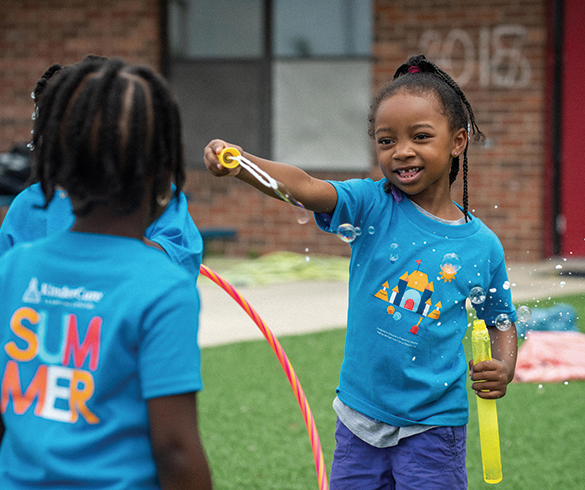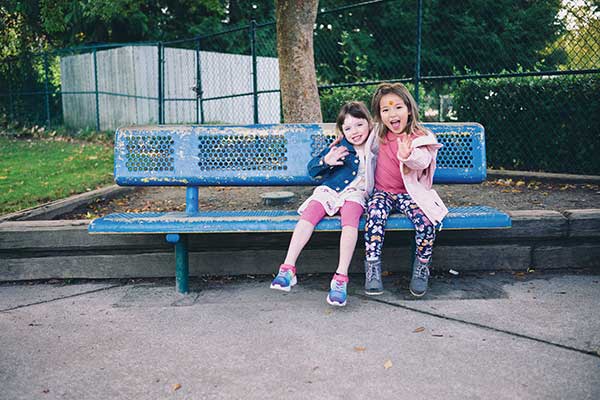
How Parents Can Help Children Build Social Skills
While adults may joke about needing to relearn how to be around others in a post-pandemic world, children can also benefit from a refresh of certain soft skills – especially young children who may not remember pre-pandemic life.
Building on these skills can also help children prepare for a successful return to school. In fact, data from Mintel shows parents’ top learning priorities for their children prior to entering grade school are how to play well with others (67%) and good manners (66%).
“Summertime is a great time for families to help their children focus on social skills that may not have gotten much attention this past year, particularly if families were social distancing or in quarantine,” said Taunya Banta, inclusion services manager for KinderCare Learning Centers. “Parents can set their children up for success when school starts again in the fall by helping them work on these soft skills in relaxed settings like family gatherings and on the neighborhood playground.”
Consider these ways parents can help their children build social skills.
 Name emotions: Naming emotions is an important part of learning how to regulate them. If your children don’t understand what emotions they’re experiencing, they may be confused or upset by how they feel and that could amplify the feelings and make it more difficult to regulate the emotions.
Name emotions: Naming emotions is an important part of learning how to regulate them. If your children don’t understand what emotions they’re experiencing, they may be confused or upset by how they feel and that could amplify the feelings and make it more difficult to regulate the emotions.
Talk with your children about your own feelings, or the feelings of characters in books, to help them learn to identify emotions and appropriate ways to address those feelings. For example, “I’m sad, but I know a hug will help me feel better,” or “I’m mad and that’s OK. It’s not OK to hit, but I can punch a pillow or stomp my feet to get the feelings out of my body.” As a family, try practicing some simple emotion regulation strategies like deep breathing. To help younger children breathe deep, hold up two fingers and ask them to smell the flower as they inhale (one finger) and blow out the candle as they exhale (the other).
Play with other children: Play gives children an opportunity to freely express their emotions and thoughts, work out feelings and explore relationships in a safe, lighthearted way. If you feel comfortable and can follow health and safety guidelines, visit a playground or set up play dates with other children of similar ages then take a step back to let the children play together. If your children aren’t ready to play with others, allow them to stay close to you until they feel ready to join the other children.
Once the children are playing together, observe their interactions and talk with your children (in the moment or later) about how they felt. If they had fun, ask what they enjoyed. If disagreements or awkward moments came up, help your children problem-solve ways they could address those situations next time.
“Most importantly, remember children of all ages have an incredible capacity for resiliency,” Banta said. “Just knowing they have a steady base to return to, a safe place where they’re loved and appreciated for who they are, can give children the courage they need to face the challenge of a new or uncertain social situation with self-confidence and courage.”
For more tips to help your children build or improve their social skills, visit kindercare.com.
Source:
KinderCare
